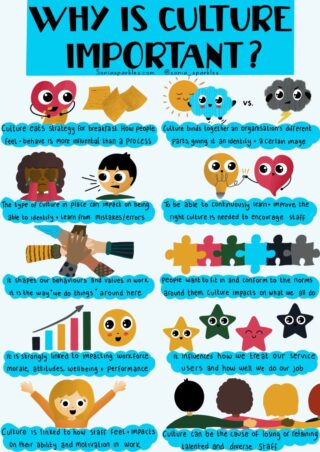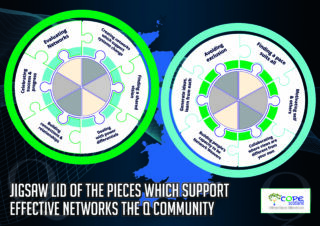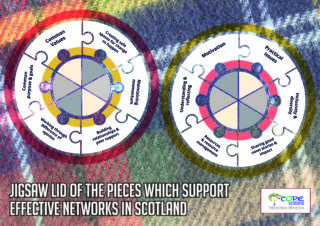Special Interest Group
Philosophy and ethics for health care improvement
To post updates and access other group functionality, please log in. If you are not a Q member please create a guest account.
Latest group activity
-
Brian Jones joined 1 day, 8 hours ago
-
Thomas John Rose posted an update 1 day, 12 hours ago
Did anyone read my comments on the ‘Keeping scepticism alive in health care improvement’ blog? I think that a really interesting and valuable (particularly in terms of ‘quality’) discussion regarding the difference between service (product) and process. In addition to these two aspects there is the input from the clinician. These three…Read more
-
Hilda Campbell MBE posted an update 1 month ago
Curious, can you help?
What does ”being in tune” and ”how much we act together” mean to you in relation to working across disciplines and departments?
Background to the question
Hello, hoping everyone is well. I am prepping for a session with this group, for part of which I am proposing we consider using the liberating structure https:/…Read more
-
This is a great topic for discussion. I would like to include some relevant sections from the new British standard BS ISO 7101:2023, co-produced with the WHO, if possible. Sections like People-centred care, Ethics, and communication. I could produce a discussion document for distribution prior to the event. I think it would be a good fit with your…Read more
-
that would be so kind and appreciated, thank you 🙂
-
I’ll get on with it. I did suggest a similar thing at the SIG conveners meeting but it did not get any votes. I’m sure we will be surprised by the results.
-
-
-
Thomas John Rose posted an update 1 month, 3 weeks ago
-
Rollo Moore posted an update 1 month, 3 weeks ago
Does it ring a distant alarm bell that the ‘artificial intelligence’ industry has taken up ‘ethics programs’ with what might be described as ‘a vengeance’? This metaphor succinctly describes my concerns growing for a balanced approach to ethics as may or may not be applied to any industry (within the competitive framework we call ‘market…Read more
-
Interesting point, is the conversation then less about ‘ethics’……… rules of conduct and instead about morals ‘Principles or habits relating to right or wrong conduct, based on an individual’s own compass of right and wrong.’ but then we get into the debate about each individuals’ moral compass and what we each see as right or wrong? is it…Read more
-
That 15% is really important. I like this image from the fantastic Sonia Sparkles: Sorry can’t add it here. I’ll put it in a new post.
-
“I see the big picture but look at what is the 15% in my control, that can help people and the planet suffer less”
thanks Hilda. I get swamped by the dread of lack/loss of control – it is a good post and point.
Objectivity vs subjectivity – individual vs communal – all a choice. Fairness and all outlooks evolve.
-
-
When I was introduced to the idea of the reticular activating system, it really gave me pause for thought about what I was locking into /and locking out. So much so I created a reflective workbook to help others who may be interested in considering the filters they use to see the world through, also with support from a colleague made a wee…Read more
-
Thanks Hilda, I followed the link and saw the RAS video, and am looking at the workbook you and team created.
It’s the second time in a few days that looking at the local and acting ‘here and now’ has been referred to. Here, and by a 91yo still strong gentleman I met a few years ago. His stories and rollercoaster history and his fraternal outlook,…Read more
-
-
Hi Rollo
I am kind of on that journey too, around where we invest our energy, more and more I am thinking of the time spent in meetings going in circles and not really being able to influence the big picture in any meaningful way, then I think about the work I do directly with people and while the impact may not be as grand as a systems shift, it…Read more
-
-
Thomas John Rose posted an update 1 month, 3 weeks ago
Webinar 19th March 12.00 – 13.00 Dr Thomas Rose
How to overcome today’s lack of NHS process documentation to support effective improvement
How to overcome today’s lack of NHS process documentation to support effective improvement – based on the works of Deming and Juran
Content:
1. Why document your key proc…Read more
-
Thomas John Rose created the document Science informed QI 2 months, 2 weeks ago
-
Thomas John Rose posted an update 2 months, 2 weeks ago
I was told today that QI approaches used in the NHS are clinically informed I’m not sure about that so I had a another chat with with ChatGTP. It was good fun but it’s a bit long to post here so I’ve added it to the SIG Documents. If only it were true!
-
Rollo Moore posted an update 2 months, 2 weeks ago
Although my experience is limited I also found the ‘ritualisation’ paper (Facey et al 2023) fascinating and relatable; our situation is perhaps at one remove from the surgical intervention scenario. However in our extended quality control I have wondered about checklists as hints. Our team aims to engage with (measurement) results and assess…Read more
-
-
Hilda Campbell MBE posted an update 2 months, 3 weeks ago
Interesting piece, does make me wonder, whether we should spend more time meaningfully engaging all stakeholders in the co design of safety systems, which means everyone has a sense of why x,y,z, is important…..(including those receiving care) and their part in it and avoid the ‘tick box’ exercise, or the ‘rituals’ of specific team members and…Read more
-
Thanks, Hilda. I am getting error messages from the two links. Could be an issue at my end. Pls could you give a little more source information to help me track them down?
-
Copy and paste links into your browser. It works for me.
-
-
Aagh, Just deleted my post by mistake. I’ll try to re-post.
-
Re-post.
Thanks, I’ll have a good look at the two link documents. Safety is a very miss-understood activity which is a shame because we should all be stakeholders in it and are all subject to it. Safety, or poor safety, is a feature of WAD. So, to be an engaging stakeholder we need to understand WAD and have the mechanisms to review and improve…Read more -
I think you make a valid point, how often the meetings/papers/policies around what is to happen (work as imagined) then the reports on the news, in the papers, of things not going to plan, and sadly on occasion this meaning the loss of life (work as done) now, we need to remember, there are many amazing things achieved within health and social…Read more
-
-
Thomas John Rose posted an update 2 months, 3 weeks ago
-
What are your thoughts on the last paragraph of the Discussion?
-
Thanks, Thomas. I am on board with the idea that audits can have unintended consequences (and it’s something that Polly, Alan and I have considered particularly in raising questions about ‘routine measurement for continuous improvement’). I’m guessing you’re also particularly interested in the idea that patient safety is ‘a property of the…Read more
-
You are right Vikki, loads of food for thought. First routine measurement for continuous improvement (CI) and, I should add, for audit also. A good Quality Management System will call for non-conformity reporting. That is non-conformities in product/Service and/or process. See clause 10.2 in BS ISO 7101:23 Healthcare organisation management -…Read more
-
I’m not sure that I see patient safety as being ‘a property of the system’ directly. What I do see is that the system (WAD) has to be understood by not just the people undertaking the work but by many other stakeholders as well. The best way of promulgating this understanding is by documenting WAD. Desk top reviews can then be undertaken for a…Read more
-
Understanding the ‘system’ is so important. As a long serving Systems Engineer, amongst other things, I have developed my own way of both understanding and documenting systems. (I can provide a real illustration at our next webinar if there is any interest). In the NHS currently it seems to me that the details provided are limited. We have Trusts’…Read more
-
Following on with discussing ‘the system’ – The last requirement of NHS Impact, ‘ Embedding into management systems and processes’ may instigate change. In the self-assessment guide they have a piece on ‘What this looks like in practice’. Starting form scratch this is a phenomenal task! The new British Standard (BS ISO 7101:2023) could satisfy…Read more
-
-
-
Hilda Campbell MBE posted an update 3 months ago
Interesting piece ‘In praise of compassion’ around the ‘tensions’ can exist between science and humanism in health care
https://journals.sagepub.com/doi/pdf/10.1177/1744987109353689
-
The link did not work for me. Is the piece by Jill Maben and others?
-
Thanks for letting me know, strange its not working now for me either and I checked it before posting, don’t know if this link is any better https://journals.sagepub.com/doi/10.1177/1744987109353689 Yes its by Jill Maben and others
-
That worked. Thanks
-
-
Thanks for bringing my attention to this piece of work from Journal of Research in Nursing [15(1) 9–13 , 2009] Maben et al.
It reminded me that at the end or perhaps focus of much of my imagined work is a patient, complex and as human as any of us. Categories and numeric analytics go some way to removing the empathic element of healthcare. The s…Read more-
Thank you for sharing. It resonates with my own thinking around balance. If someone has a rare disease it can be harder to identify and find a treatment for as its rare, the more information and data you have about the condition and responses to treatment the better outcomes there will be for people who experience this illness. We need analytics,…Read more
-
-
-
Hilda Campbell MBE posted an update 3 months, 2 weeks ago
There has been a really interesting discussion around collaboration when we perhaps have different views, values, but share a common goal. I created the Jigsaw Lid concept for COPE back in 2017 as a tool to help see the world through each others eyes and look for areas of commonality from which collective actions can be planned. It has been…Read more
- Load more

 Sorry it’s not very clear. I’ll add it to the SIG documents
Sorry it’s not very clear. I’ll add it to the SIG documents
